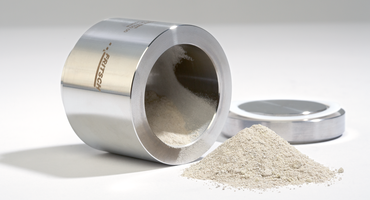Retour à l'aperçu
Sample Preparation Made Easy
Consistent, Representative, Accurate

Consistent and viable representation of sample preparation leads to more accurate and repeatable results for analysis. Obstacles in handling or reducing materials with varied sample size, moisture levels, pysical attributes, and material sensitivity create additional challenges in critical analysis.
Obtaining a representative sample from an entire batch can be variable, complex, and time consuming. This is more complex when faced with a diverse sample load. While difficult, sample preparation is one of the most important steps in obtaining accurate data from analytical testing.
In regards to comminution there are often limiting factors, like the rheological properties of a material, the ingredients, or the volatile components. In this case, consumer products such as blenders and coffee grinders are chosen for laboratory use. Industry quality knife mills offer specific utilization capabilities beyond consumer appliances. FRITSCH offers a professional, laboratory Knife Mill: The PULVERISETTE 11.
Transition from Complex to Consistent
One method to achieve a representative sample is to homogenize the whole sample. This is especially useful when the sample is complex.
Take an apple for example. What is the best way to prepare this sample for testing? Peeling the skin off, then cutting the apple into smaller bits or maybe cuttting the apple in to small pieces with the skin on. The problem is that aliquots of the sample prepared in either of these ways may have different proportions of skin to apple. This would not produce repeatable results in multiple sample aliquots. If one part of a sample contains more of an analyte, that is to be tested for, the results can be inconsistent. Homogenizing the sample aids in mitigating these inconsistencies.
Often the analytical testing utilized requires weighted samples of only a few milligrams, in which a realistic random distribution of characteristic features of the sampling seem difficult. A homogeneous sample allows for even the smallest aliquot to be more fully representative, even when needing to overcome the complications of wet, oily, fibrous, low-density, or temperature sensitive materials.
A complete sample from < 40 ml-1500 ml can be processed at once, with the Knife Mill PULVERISETTE 11, turning a heterogenous sample into a homogenous mixture. This removes the factor of uncertainty that comes with trying to prepare samples with complex matrices and ensures that any sample aliquot used for analysis will represent the sample as the whole.
Repeatability Across Users and Sites
Enabling each operator to create the same representable sample without user or appliances variance are also important factors. The Knife Mill PULVERISETTE 11 allows for SOP´s to be created for specific samples and validated in the laboratory. This increases the consistency of the how the sample is prepared and can reduce error in preparation.
Each user can easily select the programmed sample method, then the mill will do the rest of the work for them. This ensures that the sample is prepared the exact same way across differnet users, labs, and locations.

Cross (out) Contamination

Even the most well-planned sample preparation method falls short if there is contamination between samples. It is integral to have a cleaning step that reliably removes previous sample from the mill. The Knife Mill PULVERISETTE 11 provides an easy way to ensure there is no cross contamination between samples.
The knife, which is securely mounted by a bayonet lock, can be removed for cleaning with a simple motion. The standard 1.4 L grinding vessels are available in polymer, glass, or stainless steel. For high-throughput processing, 40 ml and 100 ml, single-use grinding vessels are available in both sterile and non-sterile configurations.
All parts in contact with sample material are either dishwasher safe or autoclavable for sterile comminution and ready to be incorporated into your cleaning validation protocols.
Questions? Reach out to learn more
The PULVERISETTE 11 Knife Mill handles a wide range of sample properties. All materials are unique. If this is not ideal for your application the application consultants at Fritsch will assist in reviewing your laboratory needs. We would be more than happy in helping you to select the right mill and configuration for your specific application, whether wet, dry, or cyrogenic.
The right mill for every material.
-
Download the FRITSCH-report as PDF file
-
Detailed grinding reports
Retour à l'aperçu





